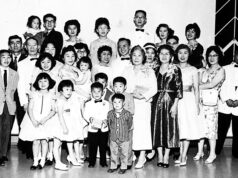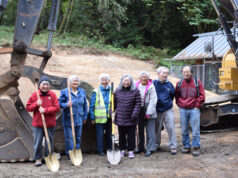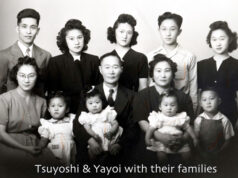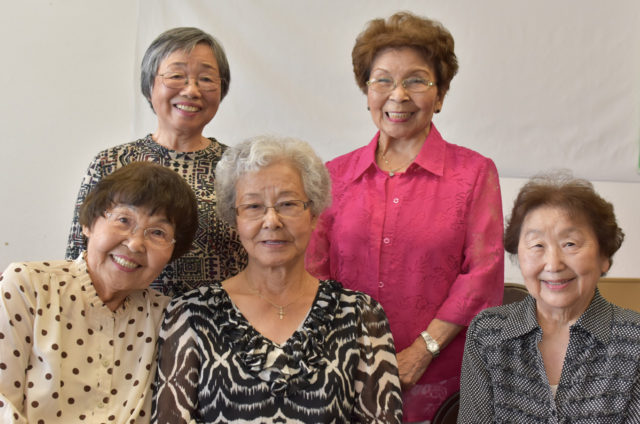
War Brides Vol.1
Interviewing members of Japanese Community Church of Tacoma
It is said that shortly after the war, approximately 40,000 to 50,000 Japanese women immigrated to America through marriage with American military men. What kind of lives have these so-called “War Brides” led up to this point? Now, 74 years after the events of World War II, all is revealed as we introduce their precious personal stories in a two-issue feature. Read the next issue when it comes out on October 11th.
Interview by Hitomi Kato, translated by Andrew Wexler
“We did well, all of us”
“Until now, I didn’t want to be interviewed”
Kiwako Critchfield

Up to this point, Kiwako has received repeated requests for interviews. However, she divulges that she was by no means in a state of mind to be able to answer these requests. “No matter what, I could not accept the term ‘War Brides.'” In Japan, scandalous mass media coverage surrounding “War Brides” was abound from the end of the war until the 1950s, leaving a lingering prejudice of “women who sell their bodies in the night.” “I was anxious about being seen in that way,” said Kiwako. “Of course, I know there are many kinds of people, some who were forced to go down this path, but I just felt bad for my parents.”
Born in Sakhalin (formerly known as South Karafuto), Kiwako was a fifth-year in elementary school when the war ended. She and her family fled from the invasion of the Soviet Army, barely escaping with their lives. That was the last time she ever saw her uncle. Her family settled down in Hirosaki City in Aomori Prefecture, where Kiwako would eventually graduate from a mission school and find employment at Misawa Airbase. It was there she met her husband, Charles, and for him, it was love at first sight.
“My father, being from the Meiji era, was very strict. He, of course, objected to the marriage. My grandfather reacted shouting, ‘Marriage with the foreign devil!?’ as he nearly disowned me for even considering it.” Kiwako’s father would eventually come to approve of her husband as he got to know him more. “When my husband saw somebody in trouble, he could not be silent. That was just the kind of man he was. Even so, being told “if only he was Japanese,” was heartbreaking…”
After Charles left the military, he realized his dream of opening up a gas station. However, due to his good nature, his business did not fare well and soon went bankrupt. The only thing he had left was an enormous amount of debt. “When I wrote to my father telling him what had happened, he was furious. He wrote back and said, ‘This was the path you chose, with the person you chose, and you failed, so don’t come crying to me!'” Subsequently, Kiwako started a job as a maid. At the time, it was the only job she could think of that she was able to do while her child was at school. She ended up finding employment at the house of a doctor living in Redmond. Even now, 30 years later, they still keep in touch. “He was so kind to me. The connection we shared from our mutual Christian faith forged an irreplaceable relationship.” Eventually, their debt was completely paid off. 16 years have passed since Charles died, but within the church community, Kiwako never feels alone.
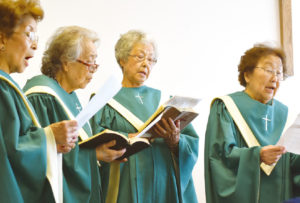
During the interview, Kiwako whispered earnestly, “we did well, all of us. ‘You should be proud of yourself.’ My husband would often say these words to me.” Those were such touching words and a smile from an individual who overcame experiences that a young person today could not even imagine.

